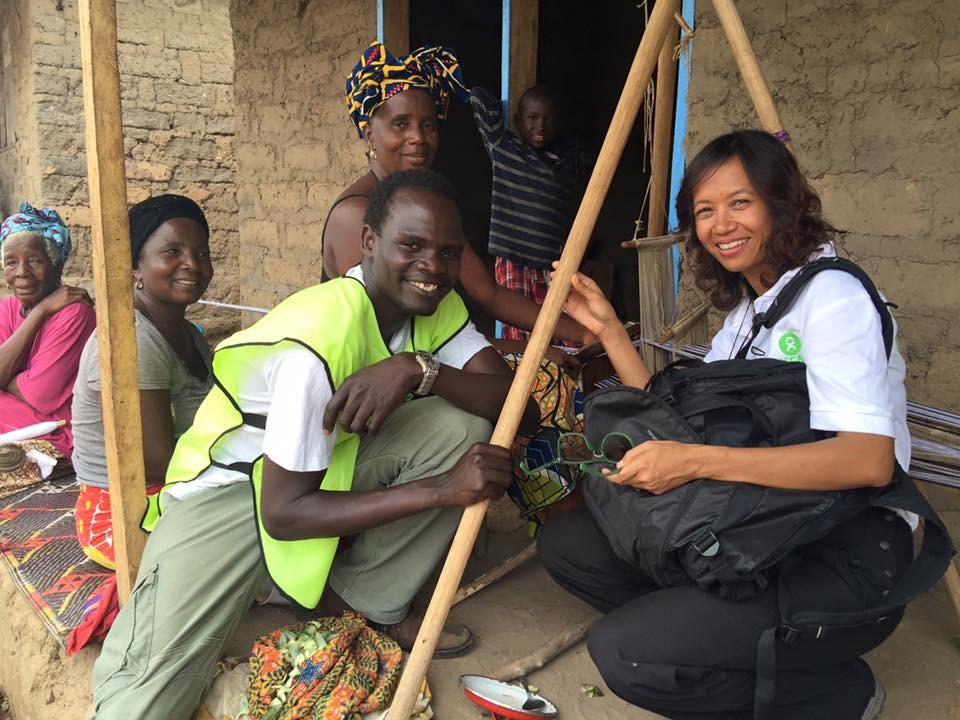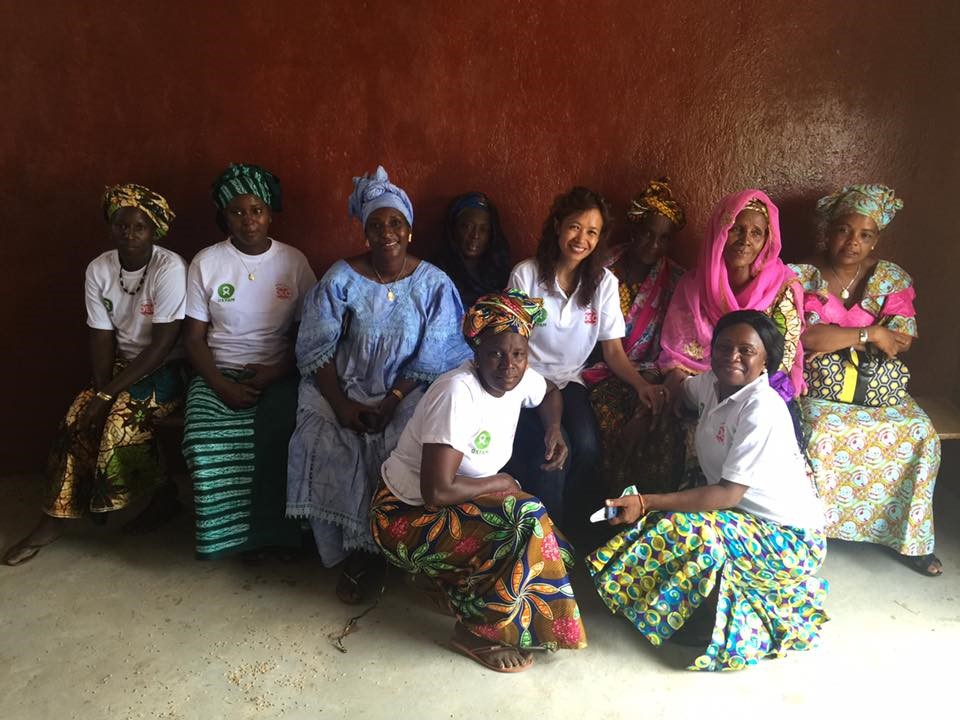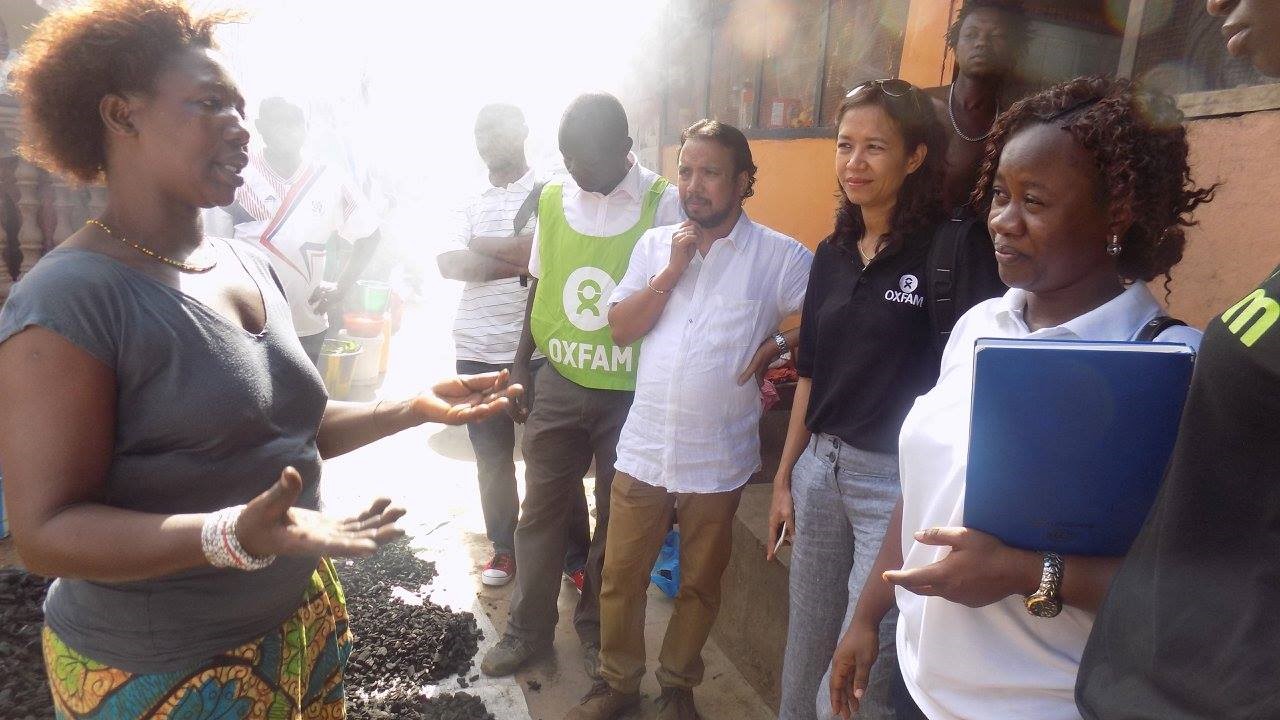
Thynn Thynn Hlaing (MPA 2008)
Country Director, Oxfam International
Sierra Leone
I believe that whatever you want to achieve in your life, you can make it happen.
[ALUMNI-INFO TEXT="I’ve worked in the development sector for over 15 years. Initially, when I was back in Myanmar, I was with an international organisation where I had reached a senior local position, and was responsible for overseeing operational functions. I wanted to move into programme and public policy engagement in the Asian region and beyond, and this yearning drove me to search for a school where I could develop the requisite skills.
The LKY School in Singapore was the ideal choice for me. For years, the school has been among the top-rated public policy schools in the world, attracting lecturers and students from all over the world. I was also drawn to the cosmopolitan yet Asian atmosphere of Singapore and the advantage of relative proximity to my family back home.
Before I joined the LKY School, I thought I understood stress, but I experienced an entirely different level of stress during my studies. My classes were challenging and demanding, and because of that, I learned to manage my responsibilities and handle stress well. I also learned to work in a diverse environment; my class comprised students from over 20 countries, and I was the only student from Myanmar.
The cornerstone of the MPA programme was integrative problem solving, which involves fusing economic, financial management, and leadership theories to address real-life problems. I am grateful to the LKY School for this academic knowledge."][/ALUMNI-INFO]

Soon after my MPA course, I joined Oxfam as a programme support and system manager. I applied the skills acquired at the LKY School, and Oxfam gave me many opportunities to learn and grow in an international capacity. Since 2009, I have assumed senior leadership roles in Sri Lanka, Cambodia, Liberia, and Sierra Leone, where I’ve been based for over three years as country director.
[ALUMNI-QUOTES TEXT="In July 2014, Sierra Leone’s government declared a state of emergency over an Ebola outbreak in the country, and it became my professional focus to fight this disease with our Ebola response programme. We faced an uphill battle: In Sierra Leone, it is tradition to cleanse the bodies of the recently deceased and this carries a significant risk of infection through physical contact. In addition, when individuals suspected they had Ebola, their families were reluctant to let them seek treatment for fear they would be quarantined and never seen again. Some tried to treat family members at home, resulting in more exposure and exacerbating the situation.
In the early days of the crisis, we didn’t know what to do because Oxfam doesn’t typically involve itself in a public health emergency of this nature—our focus is on standard humanitarian crisis responses, such as helping those caught up in natural disasters and conflicts gain access to water, food, sanitation, and protection. But, together with other agencies such as the World Health Organization, we worked desperately to contain Ebola before it posed a threat to the world. We looked at ways to use the skills and experience we had; we built medical centres, supported burial teams with equipment and training so they could work safely, improved water supply and hygiene in communities, and educated people about how they could keep themselves safe."][/ALUMNI-QUOTES]
We are currently lobbying across the world to ensure that donors and governments support our front-line clinical and community-level work. We are also focused on cushioning the secondary impact of the disease by alleviating food insecurity, increasing income opportunities, and building Sierra Leone’s health services to a point where they are resilient and ready to face new public health outbreaks.

I am proud to be leading the Oxfam team in Sierra Leone as we tackle a critical global health issue. However, I must admit that a country director’s job can be lonely as I keep a professional distance from my team to maintain impartiality. This is compounded by the fact that I don’t have my family with me in Sierra Leone. But I take pride in my work, and I know my husband is supportive of what I do because he values female empowerment.
I am also the mother of a 19-year-old daughter, and she is currently studying business management at the University of Massachusetts in the US. I want my daughter to look at me—a woman, an Asian, and a leader in an international organisation—and think, “If my mother can achieve that, why not me?”
Apart from my daughter, I hope to encourage other women, especially those from impoverished communities, to step out of their comfort zones. In Sierra Leone, I initiated a political leadership programme for women, where we’ve trained hundreds of women to stand for elections, and many have been elected as councillors. Now they can raise women’s issues at government planning sessions, ensuring that women’s voices are heard, and they’ve become role models in their own communities. Helping to bring about sustainable and transformative change for other women—this is my passion and my obligation as a woman.
Who inspires you?
There are several women leaders that I admire, but above all, I am inspired by my late mother, who always conducted herself with integrity and never lost sight of the need to do good for others. She was a judge—to be able to serve as a woman judge 30 years ago was extraordinary. She is my role model and through her, I’ve learned what to value in life.
If you could learn a new skill, what would it be?
I would like to learn more about advocacy—in my job, I need to deliver convincing messages, and I hope to develop my ability in this area to become more influential regionally and globally. As a hobby, I want to learn how to ride a horse! It’s my childhood dream.
Any advice for students who would like to follow in your footsteps?
If you aim to work in the development field but lack prior experience, you can start with a local non-governmental organisation (NGO). Local NGOs can’t pay much but they allow staff to learn and grow, so there are plenty of opportunities there. Work with a reputable local organisation and use that experience as a stepping stone. After a year or two, you can secure a job at an international organisation and take off from there. Challenge yourself to learn more, be open, and go the extra mile. The challenge never ends, and the MPA course will help you cultivate the habit of contemplating problems within a multi-disciplinary, multi-dimensional framework. Get the most out of your time at the LKY School, and enjoy Singapore.